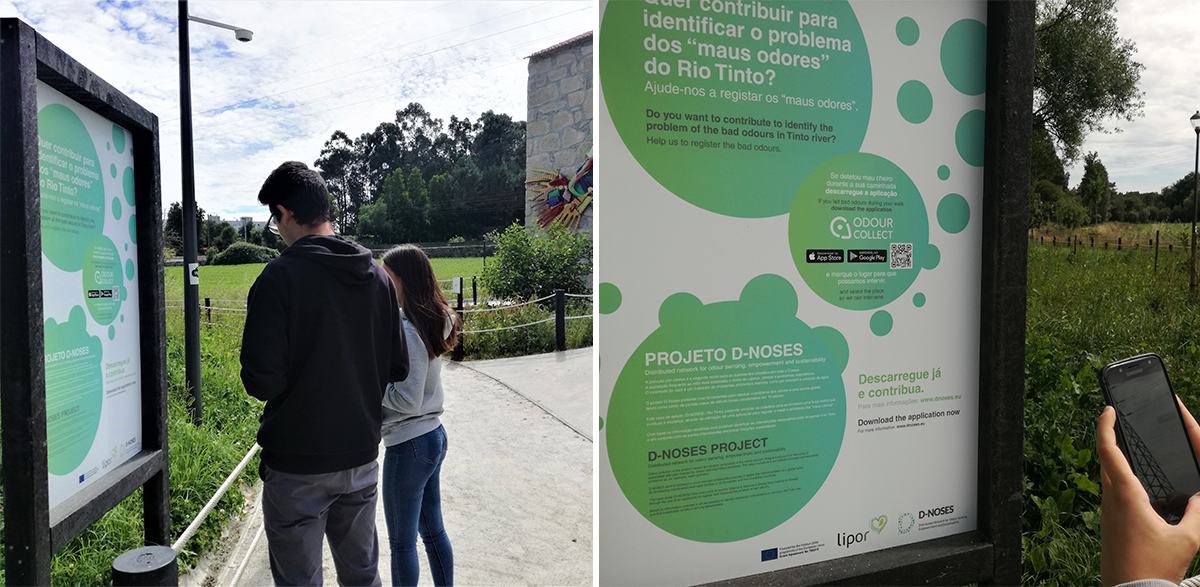N-ODORES

At the end of 2021, given the importance of the theme and, continuing the work already developed, a new project was designed to be developed at a national level, thus taking advantage of all the knowledge acquired during the D-NOSES project.
In fact, there are several reasons that lead us to the development of a new project:
- The lack of national legislation on odorous pollution;
- The "bad smell" or the nuisance caused by odor is the second largest cause of complaint from the population;
- The general undervaluation of the importance of odors in the quality of life of the populations;
- Odor management, clearly, still not being a priority at the national level;
- The concern and desire to manage even better, and minimize as much as possible the odors originating from our activity.
Therefore, a working group was created at LIPOR to outline and structure a new project on this matter, called N-Odores.
The main goal of N-Odores is to develop and implement a methodology to assess and monitor odors in the atmosphere:
- The monitoring and contribution to the definition of a National Odors Strategy;
- The creation of a national odor management network;
- The creation of a model for managing odor nuisance occurrences/complaints at a national level;
- The promotion and monitoring of the development of technological innovation on the subject;
- Promote knowledge about odors and increase the skills needed for proper odor management among technicians of municipalities, parish councils, NGOs and other public and private companies;
- Raise awareness and call the population in general to active participation in odor management, using the Citizen Science tool;
- And, in particular, the management and monitoring of odours resulting from LIPOR's activity.
Project's Mission
The mission of the N-Odors Project is to promote knowledge on the odour issue, contributing to a future National Regulation.
Project's Vision
We want to develop an odour management model that contributes to the mitigation of odour pollution.
Odours…
The problem of odor is an indicator of civilization that currently ranks second in the number of environmental complaints about nuisance, after noise. On the other hand, information, advice, and measurement of odor pollution can be difficult to find and often difficult to understand.
When we talk about odors we are talking about one of the five senses that regulate the "sensoriality" of the human species. Ancestrally, smell has been a precious contribution to the detection, positive and negative, of odors, contributing to the evolution that was consummated and the perpetuation of the existence of the species, both in terms of pleasure and satisfaction and in terms of warnings and dangers.
On the other hand, the issue of odors in ambient air is somewhat complex, as it can vary with the different sensitivity of nearby receptors, with the location (more or less distant and the topography) of the emitting source and with the weather conditions in the surroundings.
Citizen Science. Everyone counts!
We highlight the important role of the population in this kind of project, and the use of the Citizen Science tool, in the sharing of useful information, be it odor registers or dissemination of results, fundamental for the elaboration of an Odor Chart and to make possible decision making regarding the remediation of odor related problems.
One of the strengths of the N-Odors Project will be to use Citizen Science methodology to motivate citizens to participate and empower them to build a driving force for change. Co-creation tools will be used to map and measure odor problems, and co-design solutions.
Citizen Science (CC) is for everyone!
Using the power of the population, Citizen Science enables the mass collection of observations, local knowledge
and verification in a way that is neither possible nor feasible for the scientific community.
- It is therefore a flexible, simple, cost-effective, and reliable way to gather evidence that answers a specific question by demonstrating and solving a particular situation.
- It is an innovative and effective approach that is based on involving people in scientific processes, who do not work professionally in the respective field study.
- Citizens are given the opportunity to observe their environment and share information.
- CC projects the creation of scientific knowledge outside of institutionalized science.







